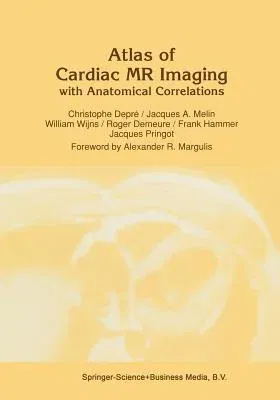C Depré
(Author)Atlas of Cardiac MR Imaging with Anatomical Correlations (Softcover Reprint of the Original 1st 1991)Paperback - Softcover Reprint of the Original 1st 1991, 17 October 2012

Qty
1
Turbo
Ships in 2 - 3 days
In Stock
Free Delivery
Cash on Delivery
15 Days
Free Returns
Secure Checkout
Part of Series
Radiology
Part of Series
Series in Radiology
Print Length
223 pages
Language
English
Publisher
Springer
Date Published
17 Oct 2012
ISBN-10
9401056854
ISBN-13
9789401056854
Description
Product Details
Book Edition:
Softcover Reprint of the Original 1st 1991
Book Format:
Paperback
Country of Origin:
NL
Date Published:
17 October 2012
Dimensions:
25.4 x
17.78 x
1.3 cm
ISBN-10:
9401056854
ISBN-13:
9789401056854
Language:
English
Location:
Dordrecht
Pages:
223
Publisher:
Series:
Weight:
421.84 gm

